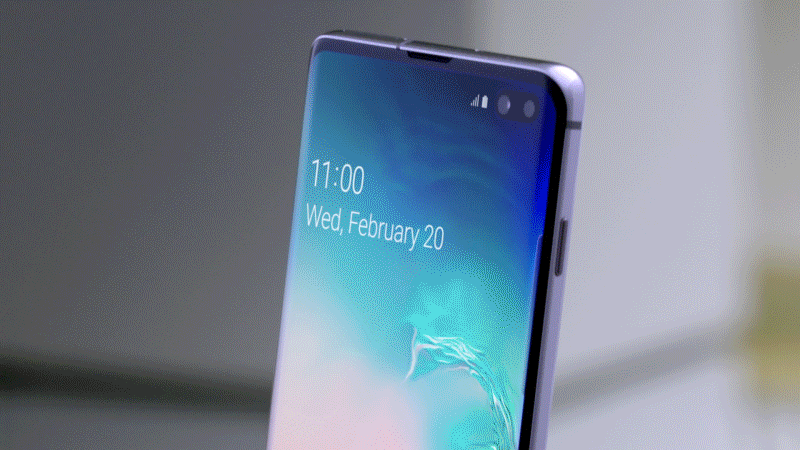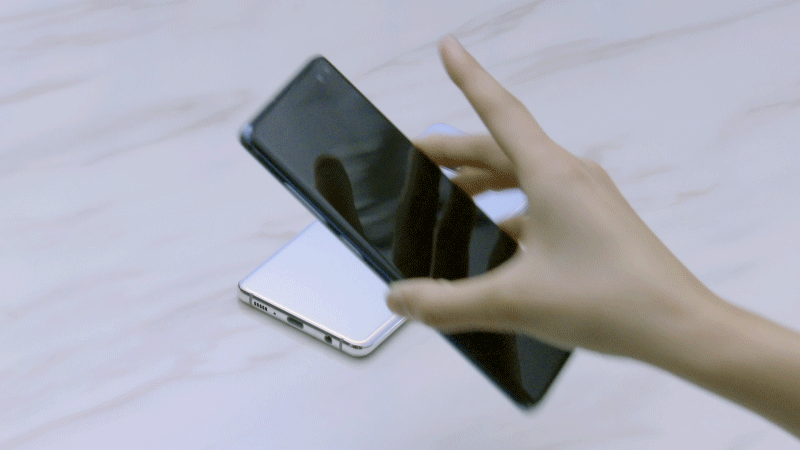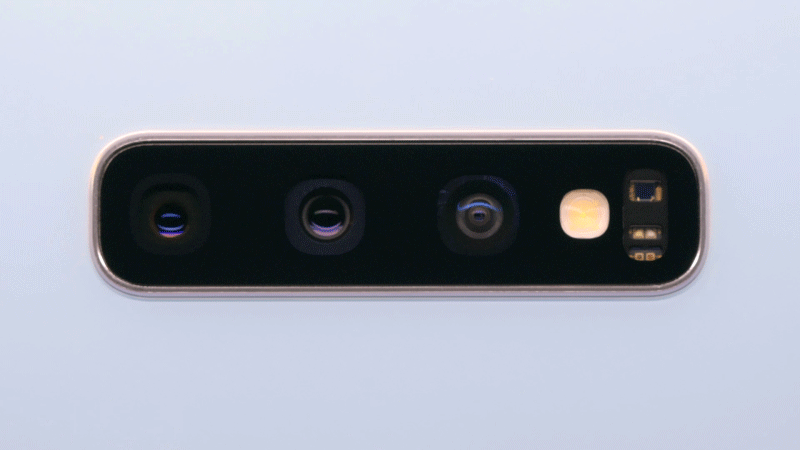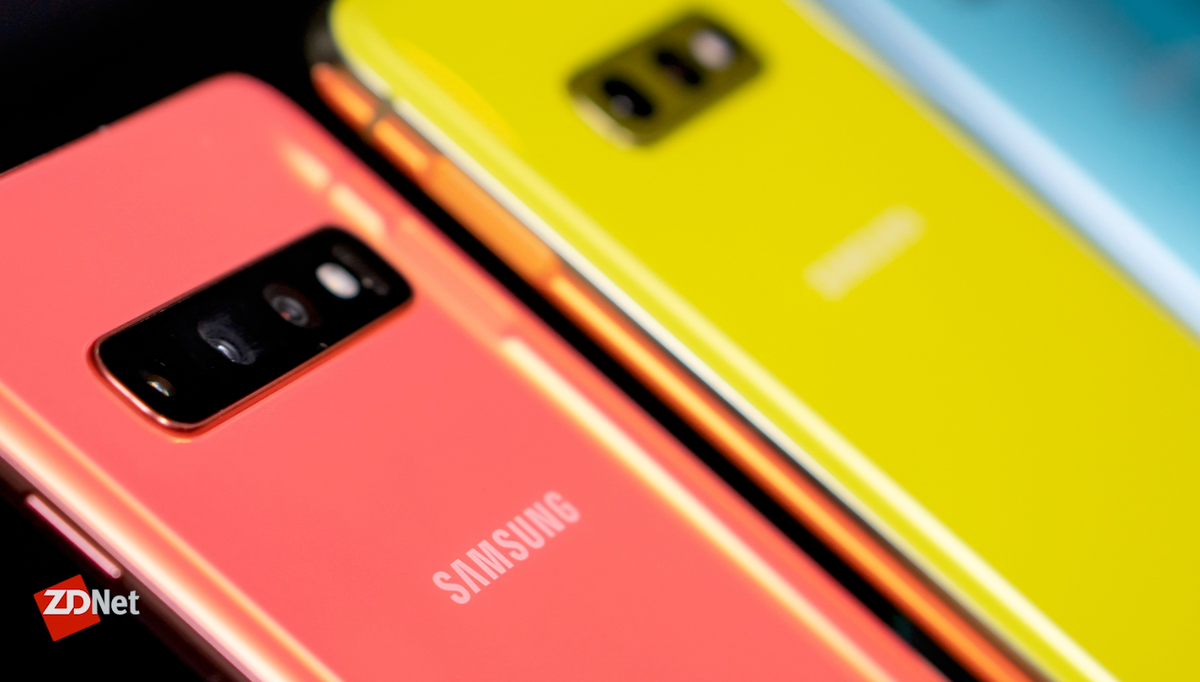Ten years after Samsung introduced the first Galaxy S phone, it revealed four new devices at Samsung Unpacked, including the Galaxy S10, the Galaxy S10 Plus, the Galaxy S10e and the Galaxy Fold. There’s everything from a $749 smartphone to a luxury device priced at a whopping $1,980.
The Galaxy S10 and S10 Plus include an Infinity-O display, an Ultrasonic fingerprint scanner, a new triple-camera system at the rear and Wireless PowerShare that allow the phones to charge any Qi-compatible device.
There’s also an entry-level Galaxy S10e, and the Galaxy Fold, a foldable device that can be used as a phone or as a tablet. The entry-level device starts at $749, the Galaxy S10 starts at $899, the Galaxy S10 Plus starts at $999 and the Galaxy Fold starts at $1,980.
Samsung will release a Galaxy S10 5G model during the second quarter of 2019.
SEE: All of TechRepublic’s cheat sheets and smart person’s guides
What is the Samsung Galaxy S10?
The Galaxy S10 is the latest flagship phone from Samsung; it replaces the Galaxy S9, which was released in February 2018. It serves a more business-focused customer than the Galaxy Note 9, which came out in August 2018 and includes the Samsung S-Pen. The Galaxy S line of phones do not include the S-Pen.
The newest flagship phone, the Galaxy S10, has the aforementioned Infinity-O display, which looks like a hole punch and replaces the notch visible on some phones.
The phone’s standout feature, the Ultrasonic fingerprint reader, is billed as “the world’s first.” It’s built into the actual display on the Galaxy S10, and it’s embedded into the power button rather than the display on the Galaxy S10e.
SEE: Samsung Galaxy Fold: A cheat sheet (TechRepublic)
The phone also offers Wireless PowerShare, which is reverse wireless charging and allows the user to place any Qi-compatible devices, such as Samsung’s Galaxy Buds, directly onto the phone for charging.
It works with the DeX docking system, just as with the previous Samsung flagship phone.
All three versions of the S10 phones include WiFi 6, which allows for faster connections, saves power and battery life, and has enhanced security built-in to keep users from connecting to risky hotspots.

Additional resources
- Samsung begins taking Galaxy S10 reservations, will arrive by March 8 (ZDNet)
- Samsung rumored to bring cryptocurrency wallet with Galaxy S10 (TechRepublic)
- Gasp! Samsung Galaxy S10 has no iPhone-style notch (ZDNet)
- Photos: First look at the Samsung Galaxy S10 smartphone line (TechRepublic)
How do the Galaxy S10, the Galaxy S10 Plus, and the Galaxy S10e compare?
As usual with smartphone lineups, the features and sizes increase with each step up in price.
The Galaxy S10 has a 6.1-inch edge display and comes in two memory and storage configurations of 8GB and 128GB of storage and 8GB and 512GB of storage. A MicroSD card can support up to 512GB of additional storage to reach just over 1 terabyte. The phone also has an Ultrasonic fingerprint scanner, an Infinity-O display, and three cameras. On the rear is a 16 MP Ultra Wide/F2.2 and Dual Pixel 12 MP OIS (Wide/F1.5/F2.4), AF with another 12 MP OIS (Tele/F2.4), AF. The front camera is Dual Pixel 10 MP AF (F1.9). The battery is 3,400 MAh. The starting price is $899.
The Galaxy S10 Plus has a 6.4-inch edge display and more configuration options. The phone has an Ultrasonic fingerprint scanner, an Infinity-O display. The memory and storage configurations are 8GB with 128GB of storage, or 8GB with 512GB of storage, or even 12GB with 1TB of storage. With the addition of a MicroSD card of 512GB, and the top-of-the-line Galaxy S10 Plus will have 1.5TB of storage. The three rear cameras are 16 MP Ultra Wide/F2.2 and Dual Pixel 12 MP OIS (Wide/F1.5/F2.4), AF with another 12 MP OIS (Tele/F2.4), AF. The front camera is Dual Pixel 10 MP AF (F1.9) with an additional 8 MP AF (Depth/F2.2). The battery is 4,100 mAh. Ceramic backs are available as an option for added durability, instead of glass. The starting price is $999.
The Galaxy S10e is a more compact version of the Galaxy lineup with a 5.8-inch screen. The fingerprint scanner is on the power button for this version of the S10 phones, and is not the same Ultrasonic version as with the S10 and the S10 Plus. The S10e display is flat. The memory and storage configurations are 6GB with 128GB of storage, or 8GB with 256GB of storage. Once again, a MicroSD card can support up to 512GB of additional storage. The battery is 3,100 mAh. There are two rear cameras, the 16 MP Ultra Wide/F2.2 and Dual Pixel 12 MP OIS (Wide/F1.5/F2.4), AF. The front camera is Dual Pixel 10 MP AF (F1.9). The starting price is $749.
Additional resources
- The Samsung Galaxy Note 9 is a bargain at $1250. Here’s why (ZDNet)
- How to use the updated S Pen with Bluetooth in Samsung’s Galaxy Note 9 (TechRepublic)
- Samsung S Pen reflections: A differentiator in a saturated smartphone market (ZDNet)
What information is available on the 5G version of the S10?
Samsung is working on the 5G version of the Galaxy S10 and it is expected to arrive in the second quarter of 2019. The price on this device has not been released. It will be exclusive to Verizon in the second quarter upon its release and available to the other three main US carriers later in the second quarter.
The S10 5G is similar to the S10 Plus, but with three upgrades: A larger, 6.7-inch display, a bigger 4,500 mAh battery, and a 3D depth camera with additional augmented reality capabilities.
Additional resources
- Special Report: How 5G will transform business (Free PDF) (ZDNet)
- Five industries that will be most affected by 5G (ZDNet)
- 5G smartphones: A cheat sheet (TechRepublic)
- Samsung Galaxy S10 5G: A cheat sheet (TechRepublic)
What is the Galaxy Fold?
The Galaxy Fold is a foldable device that serves as a phone or a tablet. It comes in four colors, black, silver, green or blue, and the hinge color can be personalized.
It can be used with two different screens. It fits in the user’s hand when folded, and can still be used to send a message or make a call. For a larger screen, the Infinity Flex display provides a multi-media experience. The user can switch between screens to see greater details, such as on a map.
It allows for the use of three apps simultaneously displayed on the screen when unfolded, and it optimizes apps such as Microsoft Office.
The Galaxy Fold has Universal Flash Storage 3.0, which is the first time it’s been available on a mobile device. It has 512GB of onboard memory.
There are six cameras on the Galaxy Fold. There are three camera lenses on the rear, two on the inside, and one on the front. This is intended to allow it to capture action at any angle.
It’s a luxury device with a luxury price tag, with both the LTE and 5G versions starting at $1,980. It will be available on April 26.
Additional resources
- Galaxy Fold: Samsung’s phone-tablet hybrid is the most exciting phone we’ve seen in years (CNET)
- Galaxy Fold: I want the specs, but no clue what to do with a $1,980 foldable phone (ZDNet)
- Galaxy Fold will amaze you. Here’s why you won’t buy one (CNET)
- Galaxy Fold: A $2,000 smartphone becomes a reality, but is it worth the money? (ZDNet)
- Mate X: Huawei’s $2,600 foldable phone steps up to Galaxy Fold with three screens, four rear cameras, 5G (CNET)
How is the Galaxy S10 different from last year’s Galaxy S9?
The best device-to-device comparison is the Galaxy S9 and the Galaxy S10, since it’s a direct replacement of last year’s phone. The Galaxy S10 is slightly larger in height and width, but weighs slightly less and is a bit thinner, than the Galaxy S9. The Galaxy S9 has dimensions of 147.7mm x 68.7mm x 8.5mm, and weighs 163g, while the Galaxy S10 has dimensions of 149.9mm x 70.4mm x 7.8mm and weighs 157g.
The Galaxy S9 has a 5.8-inch display, compared to the 6.1-inch display on the Galaxy S10.
There is also one more rear camera on the S10 than on the S9. The addition of the ultra wide 16 MP camera is new, as is an upgrade in the front camera, from 8 MP on the Galaxy S9 to 10 MP on the Galaxy S10.
The battery is also larger, with 3,400 mAh, compared to 3,100 mAh in the Galaxy S9.
Additional resources
- Here’s how Google is using AI to make your Android smartphone battery last longer (TechRepublic)
- Here’s why new phone batteries die faster than old ones, and how to keep yours alive (TechRepublic)
- The five things that kill your iPhone’s battery the fastest (ZDNet)
Who is the target audience for each device?
The target audience for the S10 flagship phone is an enterprise user, or a consumer who wants a top-notch device with the latest features. The S10 Plus targets the same user, but with a bigger display size. The S10e is for a more casual user who doesn’t want to spend as much on a device.
Additional resources
- The 10 best smartphones you can buy right now (ZDNet)
- Samsung Galaxy S9 Plus review (8.8/10) (CNET)
- A $2,000 iPhone: It’s coming. It’s inevitable (ZDNet)
- New and upcoming phones: Galaxy S10, Honor View 11, Nokia 9, and more (ZDNet)
What is the Ultrasonic fingerprint scanner?
The Ultrasonic fingerprint scanner is a first for any smartphone manufacturer and it’s on the Galaxy S10 and the Galaxy S10 Plus. The scanner is built into the bottom of the phone’s display in a fixed location. It reads 3D ridges of fingerprints, has improved anti-spoofing, and works in full sunlight. Knox Security is built in, and the fingerprint is stored in encrypted TrustZone.
Additional resources
- Smartphone fingerprint sensor checks body temperature to boost biometric security (TechRepublic)
- Security awareness and training policy (Tech Pro Research)
- Online security 101: Tips for protecting your privacy from hackers and spies (ZDNet)
- The best password managers of 2018 (CNET)
What is Wireless PowerShare?
A new feature Samsung is offering on all three new Galaxy phones is called Wireless PowerShare. It uses the Galaxy S10 lineup of phones as a charger for other devices, such as earbuds, smartwatches, and even other smartphones. It will charge even if the phone is not plugged in, but once the phone reaches 30% battery life, it will stop charging anything connected to it.
This might enable a traveler to pack fewer cords and chargers, which would be a boon for anyone who is frequently on the road.

Additional resources
- Mobile device computing policy (Tech Pro Research download)
- Photos: Useful tech accessories for iPhone X (TechRepublic)
What does it mean to have three rear-facing cameras?
There’s a third camera added to the back of the S10 and S10 Plus models. It is in addition to the wide-angle and zoom lenses on the S10 and S10 Plus and is paired with just the wide-angle lens on the S10e model. It’s an Ultra Wide lens that allows users to capture a field-of-view closer to the human eye. It’s easy to switch back and forth between the three camera lenses in the photo app.

Additional resources
- Google Lens: The potential of a smarter camera (TechRepublic)
- How to create next-level smartphone photography with lens attachments (TechRepublic)
- How to make your product photography shine (TechRepublic)
What is DeX?
DeX mode is an Android-based interface that allows the smartphone to be used with an external monitor for a PC-like experience. Using a dongle, or a multi-port adapter, makes it easy to connect to an external monitor with HDMI. The phone can connect with a dongle or a multi-port HDMI adapter.
Additional resources
- How Samsung’s DeX could transform workplace productivity (TechRepublic)
- Samsung DeX 101: Turn a Galaxy phone into your primary computer (ZDNet)
- Samsung launches DeX dongle: Here’s how it stacks up to the original (TechRepublic)
Where and when can I buy the Galaxy S10?
Pre-sales of each version of the S10 began on February 21 and the phones will officially be available on March 8. The on-sale date for the 5G version will be sometime during the second quarter of 2019. The Galaxy Fold will be available on April 26.
The Galaxy S10, Galaxy S10 Plus and Galaxy S10e will be available in Prism White, Prism Black, Prism Blue and Flamingo Pink in carrier and unlocked by Samsung versions in the US. The Galaxy S10 Plus will also be available in two ceramic models: Ceramic Black and Ceramic White.
SEE: Photos: Samsung Galaxy S10, S10 Plus and S10e phone cases (TechRepublic)
AT&T, Spectrum Mobile, Sprint, T-Mobile, U.S. Cellular, Verizon Wireless and Xfinity Mobile will carry the Galaxy S10, Galaxy S10 Plus and Galaxy S10e in stores and online beginning March 8, 2019. Amazon, Best Buy, Costco, Sam’s Club, Target, Walmart, Samsung.com and the ShopSamsung app will also carry the Galaxy S10, Galaxy S10 Plus and Galaxy S10e. Pricing starts at $899.99 for the Galaxy S10, $999.99 for the Galaxy S10 Plus and $749.99 for the Galaxy S10e for both carrier and unlocked versions.
The Galaxy S10 5G will be exclusive to Verizon in the second quarter upon its release and available to AT&T, Spectrum Mobile, Sprint, T-Mobile and Xfinity Mobile customers later this summer.
Samsung announced on February 20 that it is opening three experiential retail stores in Los Angeles, Long Island, NY, and Houston. The stores will allow customers to have a hands-on experience with new devices as well as offering in-store VR features and 4K gaming.
Additional resources
- Those Galaxy S10 prices: Why expensive smartphone upgrades without 5G are just plain dumb (ZDNet)
- People don’t want to pay big bucks for a new smartphone (ZDNet)
- The 10 best not-so-new phones: Why last year’s models make great deals (ZDNet)
What are the specifications of the Galaxy S10?
- Dimension and weight: 149.9mm x 70.4mm x 7.8mm; weighs 157g
- Display: 6.1″, 19:9 (Edge) Wide Quad HD + Dynamic AMOLED
- Processor: Octa-core, ⅞ nm process
- Network: Up to 7 CA, LTE Cat.20
- Cameras: Rear: 16 MP (Ultra Wide/F2.2) and Dual Pixel 12 MP OIS (Wide/F1.5/F2.4), AF with another 12 MP OIS (Tele/F2.4), AF. Front: Dual Pixel 10 MP AF (F1.9)Memory:8GB RAM, 128GB + MicroSD slot (up to 512GB)8GB RAM, 512GB + MicroSD slot (up to 512GB)
- Battery: 3,400 mAh
- Charging: Fast Wireless Charging 2.0, Wireless PowerShare
- Security: Embedded Ultrasonic Fingerprint Scanner, Face Recognition
- Sensors: Accelerometer, Barometer, Gyro Sensor, Compass, Magnet (Hall) Sensor, Proximity Sensor, RGB Light Sensor, HR Sensor
What are the specifications of the Galaxy S10 Plus?
- Dimension and weight: 157.6mm x 74.1mm x 7.8mm; weighs 175g
- Display: 6.4″, 19:9 (Edge) Wide Quad HD + Dynamic AMOLED
- Processor: Octa-core, ⅞ nm process
- Network: Up to 7 CA, LTE Cat.20
- Cameras: Rear: 16 MP (Ultra Wide/F2.2), FF and Dual Pixel 12 MP OIS (Wide/F1.5/F2.4), AF with another 12 MP OIS (Tele/F2.4), AF. Front: Dual Pixel 10 MP AF (F1.9)Memory:8GB RAM, 128GB + MicroSD slot (up to 512GB)8GB RAM, 512GB + MicroSD slot (up to 512GB)
- 12GB RAM, 1TB + MicroSD slot (up to 512GB)
- Battery: 4,100 mAh
- Charging: Fast Wireless Charging 2.0, Wireless PowerShare
- Security: Embedded Ultrasonic Fingerprint Scanner, Face Recognition
- Sensors: Accelerometer, Barometer, Gyro Sensor, Compass, Magnet (Hall) Sensor, Proximity Sensor, RGB Light Sensor, HR Sensor
What are the specifications of the Galaxy S10e?
- Dimension and weight: 142.2mm x 69.9mm x 7.9mm; weighs 150g
- Display: 5.8″, 19:9 (Flat) Full HD + Dynamic AMOLED
- Processor: Octa-core, ⅞ nm process
- Network: Up to 7 CA, LTE Cat.20
- Cameras: Rear: 16 MP (Ultra Wide/F2.2), FF and Dual Pixel 12 MP OIS (Wide/F1.5/F2.4), AF Front: Dual Pixel 10 MP AF (F1.9)Memory:6GB RAM, 128GB + MicroSD slot (up to 512GB)8GB RAM, 256GB + MicroSD slot (up to 512GB)
- Battery: 3,100 mAh
- Charging: Fast Wireless Charging 2.0, Wireless PowerShare
- Security: Capacitive Fingerprint Scanner, Face Recognition
- Sensors: Accelerometer, Barometer, Gyro Sensor, Compass, Magnet (Hall) Sensor, Proximity Sensor, RGB Light Sensor
